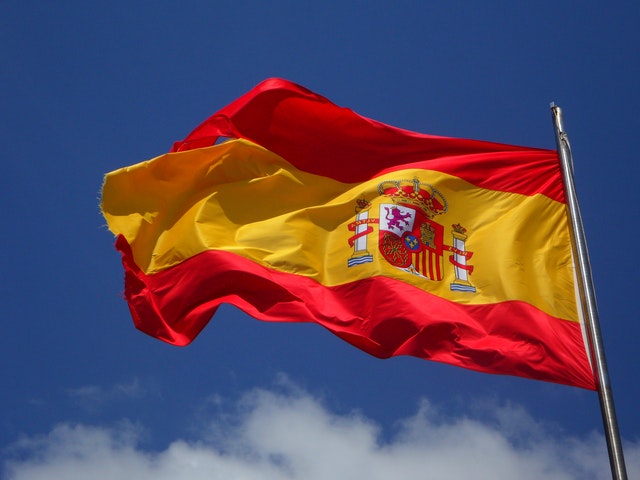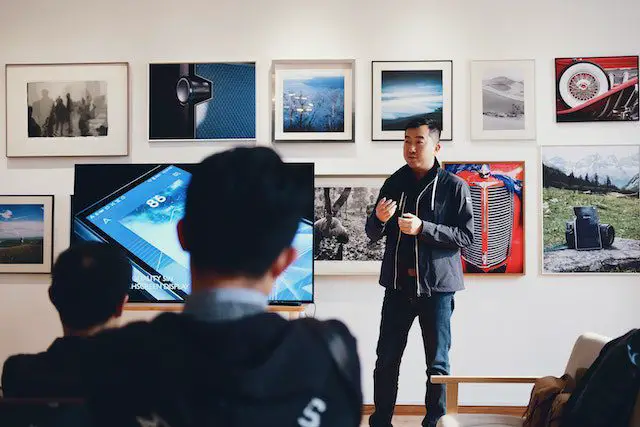
You already know that you want to study in Spain. You have already found scholarship information that can help you. You have already located a university that interests you and that has the study program you want to do. But what do you know about the country? What will you need to enter and live? Here is a little guide to help you get started.
1. Preparing your stay
When preparing your trip to another country to continue your training, you should consider some aspects to take into account when taking your international flight and at the customs of the country where you arrive:
1.1 Airport and customs
• Baggage: carry-on and checked baggage
Before heading to the airport, check with your airline about the specific limitations on the number of packages, the maximum measurements, and the weights that apply to the transport of hand and checked baggage. In addition, it is very important to check the list of prohibited and limited products for various reasons (security, fiscal,…) both in hand luggage and in checked luggage.
• Food and medicine
If you travel with food or medicine, you should check the regulations of the country of destination. In general, hand luggage can carry food or medicine that you must use during the trip (outbound flight + stay + return flight) due to the need for special diets, illnesses, or children’s food. It is therefore important to have proof of use (prescriptions or medical reports). If you need to transport other medical supplies (syringes for diabetics, measuring devices, etc.), you must notify your airline in advance, which will inform you of the procedure to follow.
• Money
You must fill out the mandatory declaration requesting information on the amount of money you carry with you in any of the related forms (bill, cash, check,…).
• Companion animals
It is convenient that when you make the reservation or purchase of the ticket, either in the airline or in the travel agency, you communicate your intention to take a pet on board and that you are informed of the specific conditions for its transport (documentation of identification, vaccination, microchip, etc.).
• Luggage incidents
If at the time of receiving your checked baggage you detect destruction, loss, or damage to it and if the event that caused the damage occurred on board the aircraft or while the checked baggage was in the custody of the company, the airline is responsible. In this case, you must immediately go to the company’s counter at the airport to file the corresponding report.
However, the company will not be liable to the extent that the damage is due to the nature, defect, or vice of the baggage.
In the case of unchecked baggage, including personal belongings, the company is responsible if the damage is due to its fault or that of its dependents or agents.
• Obtaining a visa
Once you have completed the procedure to obtain your scholarship, having been chosen, you need to obtain the necessary permits to remain in the country or countries of destination during the time of the scholarship. To do this, get in touch from your own country with the foreign consulates where you are going to reside and thus carry out the process of obtaining the necessary permits.
In the same way, if you are going to move with your relatives, they must individually carry out their procedure to obtain their corresponding residence permits.
To obtain all the necessary information to reside in Spain, visit the website of the Ministry of Foreign Affairs and Cooperation of the Spanish Government.
For more information on airports and customs on your trip to Spain, visit the Spanish Airports and Air Navigation (AENA) portal in the “Airports” option.
Visit this page for more information on how to obtain a Spanish Visa.
1.2 Accommodation
This concept is one of those that make life more expensive for students who go to study in another country unless they have obtained it in their scholarship as a benefit. In the event that it is not part of the scholarship, you must reserve accommodation from your country of departure to have a place to arrive. This concept is one of those that make life more expensive for students who travel to study in another country. unless they have obtained it in their scholarship as a benefit. In the event that it is not part of the scholarship, you must reserve accommodation from your country of departure to have a place to arrive.
In Spain, you will be able to find many accommodation options, as it is one of the countries with the largest hotel offer in the world.
Normally, people who are going to study or research in Spain opt for the following accommodation:
• Student residences or Residence Halls
The Student Residences are normally located in the vicinity of the Campuses. They usually offer a series of services demanded by university students, from accommodation and maintenance to laundry and library. There are various types (female, male or mixed), which depend on different educational institutions or are managed independently.
As for the Residence Halls, the main peculiarity of these University Centers is that, in addition to providing accommodation for teachers and students, They also promote the cultural, scientific, and sports training of residents, projecting their activity at the service of the university community. If you are a university student and are looking for accommodation in Halls of Residence and University Residences, Get in touch with the International Relations Office of your university so that they can inform you in more detail about the best options. In the following addresses you will find lists of University Residences:
– Masters in the “Residences” option
• Apartment rental or share
Rental prices can vary significantly depending on the area of Spain (including the part of the city in which the house is located), the number of people who share the flat, and the characteristics of the house.
Some universities have rental and shared flat exchanges, which serve to put students looking for a house in contact with owners who offer to the house for rent. Although they do not usually manage rentals directly, it is common for them to advise and guide you in your search for roommates.
Apartment rental portals:
– Fotocasa
Portals where you can find options to share a flat:
– Room go
1.3 Medical insurance
Coming from a country that is not a member of the European Union, when you apply for your study visa you must accompany the application with private medical insurance that covers you for the entire time you are going to be in Spain unless the scholarship covers that insurance.
This has become mandatory for entry to most countries on this continent since they have signed an agreement called the Schengen Treaty.
The medical insurance to be contracted according to this Agreement must include:
– guarantee €30,000 of medical coverage for illness or accidents.
– guarantee funerary repatriation.
– guarantee sanitary repatriation.
– in no way can they have deductibles.
2. Learning to live
In this section, you will find important information so that your adaptation to Spain is easier on a day-to-day basis.
2.1 Climate
We leave you these portals where you can find the historical, current, and projected temperatures.
– Aemet
2.2 Currency
In Spain, as a member of the Euro Zone, the currency in circulation is the euro (€). Each euro is further divided into 100 cents. Euro bills are identical on both sides in all countries and their denominations are 500, 200, 50, 100, 50, 20, 10, and 5. Coins, on the other hand, have a common front in all countries, while the reverse bears a distinctive national emblem.
In some shops and establishments, payment with 500-euro bills is not allowed, so it is better to get change for lower-denomination bills if you are going to make purchases.
Remember that the currencies of Latin American countries cannot be exchanged for other currencies outside their own country, so make the change to Euros in your own country of residence before your departure to bring some cash, as it will be very useful.
The following portals are currency converters, to know the current exchange rates:
2.3 Open a bank account
For the opening of bank accounts by foreigners, Spanish legislation distinguishes between resident foreigners (those who have a residence permit) and non-residents.
Foreigners considered residents must present their NIE (foreigner identity number) to the bank and meet the rest of the requirements requested by each bank to open a bank account.
People considered non-residents need a “certificate of non-residence” to open a bank account in Spain. The certificate is obtained by going to any National Police station.
This certificate can also be processed by the bank for us, but it charges a commission for it. The other type of document that non-residents need to open a bank account is a passport or an identity document valid in their country of origin.
2.4 Time zones
All-time zones are defined in relation to Coordinated Universal Time (UTC), so they are centered on the Greenwich meridian (0º). When going from one time zone to another in an Easterly direction, you have to add an hour and on the contrary, when going from East to West, you have to subtract an hour.
Spain is in the UTC+1 time zone.
You can check the world times on the World Time website.
2.5 Holidays and vacations
Spain occupies the ninth position in the ranking of the countries that have the most holidays worldwide, reaching 36 days a year. That is, adding 14 holidays and 22 annual vacations.
The first positions in the world ranking are:
The following links inform about public holidays in Spain:
2.6 Cost of living
It is difficult to determine the cost of living in one country without making it relative to another. In these portals we suggest you find cost comparisons between countries and cities for basic products.
2.7 Security level
The “Institute for Economics and Peace” annually updates its citizen security indexes and their relationship with the economic cost in each country of the world. This portal will be useful in these aspects:
2.8 Units of measure
In Spain, the International System is used. The basic units are:

2.9 Electrical System
It is very important when traveling to other countries to take into account the electrical system with which we are going to find ourselves because from the point of view of us as users there is variation in the consumption voltage as well as in the shape of the pins for contacts.
On the following website there is detailed information for all the countries of the world in the “Types of plugs” option in the side menu of “Utilities”:
2.10 Emergency phone
If you require health care, firefighting, rescue, citizen security, civil protection,… all kinds of emergencies are centralized in a single number for the whole of Europe, 112.
Cell phones without a SIM card can also call 112 and it’s free.
2.11 Embassies
These links are very useful for obtaining official information on the countries or assistance in case you want to go to the diplomatic representation of your country abroad:
– Embassy-online
– Embassy-finder
3. Higher Education System in Spain
3.1 Structure of the university education system
• The First Cycle or Degree
The training objectives will be of a general purpose with a professional orientation, that is, they must provide a university education in which both the generic competencies and the transversal competencies related to the integral formation of people and the more specific competencies that make a professional orientation possible are integrated. that allows graduates to enter the labor market.
Its current duration is four years.
• The Second Cycle or Master
These official studies are aimed at specializing the student in their academic, professional or research training and culminate in obtaining the Master’s degree that is valid in all the signatory countries of the European Higher Education Area (EHEA).
Its duration is one to two years.
• The Third Cycle or Doctorate
The purpose of these studies is the advanced training of the student in research techniques. They are divided into two cycles: one of the studies of at least one year (which can be part of a Master’s program) and another of research, which culminates in the public defense of original research work (the Doctoral Thesis), by the of the student.
These full-time studies can be completed in a maximum of three years or five years part-time.
In addition, there is the possibility of obtaining the “European Doctorate” mention, for which the student must fulfill:
- The doctoral student must have spent a minimum stay of three months outside of Spain studying or carrying out research work.
- Part of your thesis will have to be written and presented in one of the usual languages for scientific communication other than the official ones in Spain.
- That it be informed by a minimum of two expert doctors belonging to a non-Spanish higher education institution or research institute.
- That at least one non-Spanish expert has formed part of the thesis evaluation committee.
To learn more about the educational system in Spain, we recommend these websites:
– Ministry of Education of the Government of Spain
– Page on educational systems of the European Commission
3.2 Educational rankings
Educational rankings are very diverse and with different measurement parameters. It is interesting to review several to give us an idea of the academic level of the institutions without these being definitively an absolute reference regarding educational quality.
We offer you links to the most relevant world rankings in the university and master’s fields:


















Good evening Sir or madam Iam applying for a full funded scholarship to travel abroad
Good evening! When applying for a fully funded scholarship to study abroad, it’s important to approach the application process strategically. Here are some general steps and tips that might help you in your application journey:
1. **Research Scholarships**: Look for scholarships that match your field of study, destination, and specific needs. Since you’ve mentioned using PickAScholarship.com as a resource, make sure to explore it thoroughly to identify opportunities that suit you.
2. **Understand Requirements**: Each scholarship will have its own set of requirements. Carefully read the eligibility criteria and make sure you meet them before applying.
3. **Prepare Your Documents**: Commonly required documents include transcripts, letters of recommendation, a personal statement or essay, proof of language proficiency (such as TOEFL or IELTS scores), and sometimes a research proposal.
4. **Craft a Strong Personal Statement**: This is your chance to showcase your motivations, goals, and why you deserve the scholarship. Be clear about your academic achievements, career aspirations, and how the scholarship will help you achieve them.
5. **Get Quality Letters of Recommendation**: Choose referees who know you well academically or professionally. Provide them with sufficient information about the scholarship and what qualities or achievements you’d like highlighted.
6. **Highlight Extracurriculars**: If applicable, mention any extracurricular activities or volunteer work that demonstrate leadership skills or community involvement.
7. **Prepare for Interviews**: Some scholarships require an interview as part of the selection process. Practice common interview questions and consider doing mock interviews with friends or mentors.
8. **Pay Attention to Deadlines**: Mark all relevant deadlines on your calendar and ensure all parts of your application are submitted on time.
9. **Proofread Your Application**: Make sure there are no grammatical errors or typos in your application materials. Consider having someone else review them for clarity and correctness.
10. **Apply Early**: Start the application process early to avoid last-minute stress and give yourself ample time to refine each component of your application.
Applying for scholarships can be competitive, so it’s essential to present yourself as effectively as possible through each element of the application process. Good luck with your applications!